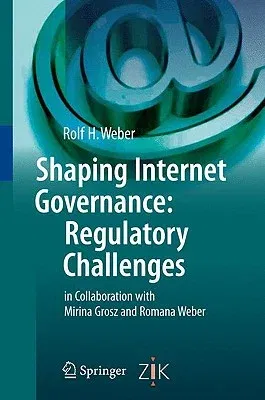The information society is a key issue in everyday life and a phenomenon
enc- passing social, cultural, economic, and legal facettes. Currently,
an information society's legal framework is gradually crystallizing
under the newly introduced term of "Internet governance". During the
last few years, intensive discussions about the contents of Internet
governance have addressed manifold aspects of a possible regulatory
regime. In light of the general comprehension that an international
treaty structure is mi- ing and that self-regulation as a normative
model does not sufce in all respects, new architectural and
constitutional theories have been developed; furthermore, the
international body of the Internet Governance Forum (IGF) came to life.
N- withstanding the available literature on IGF, however, a thorough and
systematic study sheding light on the main topics of Internet governance
(such as legitimacy, transparency, accountability, and participation)
and on the key regulatory issues (for example critical Internet
resources, access, protection of civil liberties/- man rights,
realization of security, safety and privacy standards, as well as the
overcoming of the digital divide) from a legal perspective is not yet at
hand. The present publication aims at discussing these legal challenges.
This book has benefted from many inputs and encouragements from
colleagues that I am deeply grateful for. In particular, I am indebted
to the very meaningful discussions and valuable support in the
preparation of the publication by my - search assistants lic. iur Mirin
. a Grosz and lic. iurR . omana Weber, to lic. iur.

